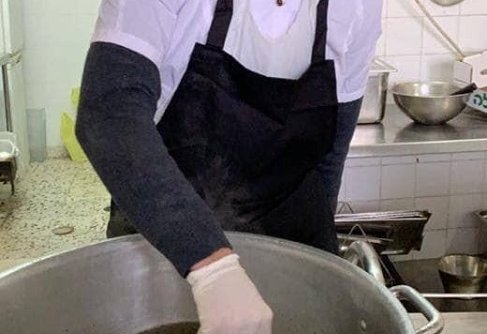MAP demands accountability for killing of Eyad Hallaq

Warde Abu Hadid, who worked with Eyad as a trainer at the Centre’s kitchen, witnessed his killing.
“It is true that Eyad was 32 years old, but he was my little child, the most genuine and pure personality. He excelled in all the skills needed in the kitchen, personal hygiene, and he was fully independent. He was ready to finish the training and start the Supported Employment Program in February, but due to the coronavirus lockdown, it was postponed.
“We usually start working at the kitchen around 6:30 am. I was walking last Saturday at that time in the Old City, where our centre is located. Suddenly, I heard a number of soldiers shouting, and I looked behind and I saw Eyad running towards me and calling my name. The soldiers started shooting towards us. Eyad managed to reach me and he said “Ms Warde tell them I am with you” and then he was lying on his side and he was bleeding.
“I started screaming, in Arabic and in Hebrew “Stop he has a learning disability!”. A group of soldiers approached us and asked us “Where is the gun?”. I said he is with me and we have no gun. Then three bullets were fired at point blank towards Eyad, who was already bleeding on the floor.
“I was in full shock. Eyad came to seek my protection, but I could not protect him. At that moment, tens and tens of soldiers rushed towards us. Two female women started aggressively inspecting my body looking for a gun. I was speechless. We had no guns. I was dragged to an investigation room, I thought they were going to shoot me. They just killed Eyad for no reason, and I thought they would kill me next. I was terrified. They kept me until noon at the interrogation, I told them what happened, and they let me out.”
Sadly, Eyad’s killing is not exceptional. Palestinians, including those with disabilities, are shot with alarming regularity. The Palestinian human rights organisation Al Haq documented the killing of 10 Palestinians with disabilities in 2018. In 2019 a UN Commission of Inquiry found “reasonable grounds to believe that Israeli snipers shot at journalists, health workers, children and persons with disabilities, knowing they were clearly recognizable as such.” More broadly, last year Israeli forces killed 135 Palestinians.
Israel’s systemic failure to ensure meaningful investigation or accountability for killings has been highlighted by the Israeli human rights organisation B’Tselem, as well as by MAP and partners in its Chronic Impunity report with regards attacks on the health sector.
MAP conveys its condolences to the family and friends of Eyad Hallaq and calls on the UK government and the international community to ensure that there is a prompt, effective, independent and thorough investigations into Eyad’s killling and that the perpetrators are held to account.
Related content

